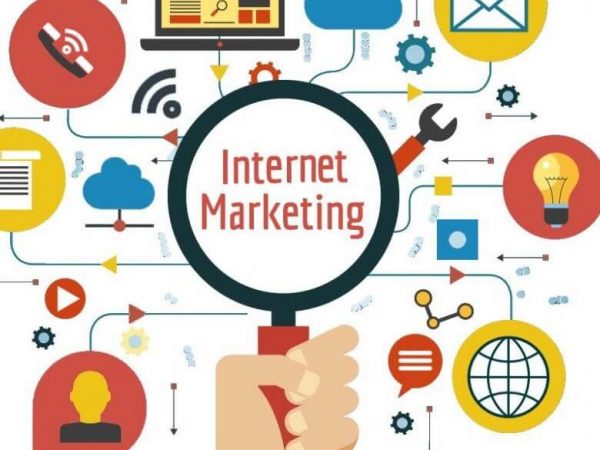Internet marketing does not require physical contact
Internet marketing
the practice of using all aspects of traditional Internet marketing to sell a product or service to customers and manage relationships with them.
Internet marketing includes such areas as social media promotion (SMM), website optimization for search engines (SEO), email marketing, search engine marketing (SEM), inbound marketing, affiliate marketing and other types.
When using Internet marketing, physical contacts are not required, which reduces the cost of maintaining offices or representative offices.
Internet marketing is a component of e-commerce. It is also called online marketing. It may include such parts as SMM, SEO, PPC, information management, PR, internet analytics, customer development (collecting feedback from customers to improve products and services).
E-commerce and Internet marketing have become popular with the expansion of Internet access and are an integral part of any normal marketing campaign. The segment of online marketing and advertising is growing both in the consumer sector, as evidenced by the emergence of more and more new online stores every day, and in the B2B market.
The main advantages of Internet marketing are interactivity, the possibility of the most accurate targeting, the possibility of post-click analysis, which leads to the maximum increase in indicators such as website conversion and ROI of online advertising.
Internet marketing includes such elements of the system as:
- media advertising
- contextual advertising
- search engine marketing in general and SEO in particular
- promotion in social networks: SMO and SMM
- direct marketing using email, RSS, etc.
- viral marketing
- guerrilla marketing
- internet branding
- email marketing
- content marketing
- Programmatic (RTB)

Among the innovative ways to promote products on the Internet, the following are distinguished:
use of non-standard advertising media (promotional games, viral videos, game branding);
Internet exhibitions, Internet auctions;
web conferences (podcasts, webcasts, webinars, broadcasts, webinars);
systems of interaction with sellers (VRM);
website promotion in social media (SMO – optimization for social media, SMM – marketing in social networks, Social Ads – advertising in social networks);
mobile advertising (mobile application – advertising in mobile applications)
augmented reality (AR or augmented reality are systems in which the real world is supplemented by virtual objects).
Story
Until 1990, the use of the Internet for business was prohibited by the regulations of the US National Science Foundation, but later large companies gained access to it. After the transfer of control over the Internet to private hands in 1992, the circle of consumers and Internet service providers has expanded significantly, the network has connected millions of people and computers around the world.
In the same year, Charles Stack’s first online bookstore opens. Amazon was founded in 1994 and launched its online store in July 1995. In October 1994, First Virtual began to offer its services for paying for goods on the Internet and became the first electronic payment system.
A couple of years later, in 1996, MasterCard and Visa announced the creation of an open, unified standard for protecting payments on the Internet using plastic cards, which was referred to as SET. A little later, the first search engines begin to appear.
Now Internet marketing
is something more than selling information products, now there is a trade in information space, software products, business models and many other goods and services. Companies such as Google, Yahoo, and MSN have taken the online advertising market to the next level and segmented it by offering local advertising services to small and medium businesses.
Return on investment has increased and costs have been reduced. This type of marketing has become the basis of modern capitalism, which allows anyone with an idea, product or service to reach the widest possible audience.
The use of the term “Internet marketing” usually refers to the use of direct response marketing strategies that are traditionally used in direct mail, radio and television commercials, only here they are applied to the Internet business space.
These methods have proven to be very effective when used on the Internet, thanks to the ability to accurately track statistics, multiplied by the ability to be in relatively constant contact with consumers, whether B2B or B2C (business-to-consumer). This possibility of precision analysis is now used everywhere, and therefore it is so common to see such terms as ROI – return on investment ratio, conversion rate – effective visit rate (aka site conversion), as well as instantly get statistics on sales, demand, etc. .
